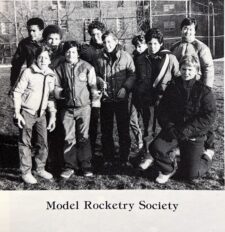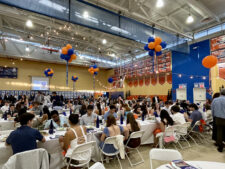“Typical history coursework at Fieldston Upper helps students connect the past with the present by teaching them the origins of human history and society, and helping them to see that everything that is happening today can trace its roots back to past events and people,” says History Department Chair Miriam Paterson. “Nothing happens in a vacuum. If we hope to understand the complexities of human experience, emotion, and decision making, we must understand the past and its indelible mark on the present. Students are encouraged to use (and practice) their critical thinking skills, with the thoughtful assistance of the teacher, to help them understand the modern relevance of their history lessons.”
In Karen Drohan’s 9th Grade World History class, students reflect upon their own educational history through the lens of Enlightenment and pre-Enlightenment philosophers. For their social contract project, 9th Graders considered how they wish to be governed and what responsibilities exist within their Fieldston Upper society. They then interviewed different school constituencies, including administrators and teachers, to gather more thoughts on educational society, ultimately creating a final contract detailing their ideal vision.
“I always like to apply things that I’m learning to things in my real life because I feel it helps me get a better understanding,” says Olivia R. ’27. “We started by learning just about the philosophers and their ideas, and I was sort of getting a concept of it. But the second that we started applying it to things that were relevant in my life, it started making more sense.”
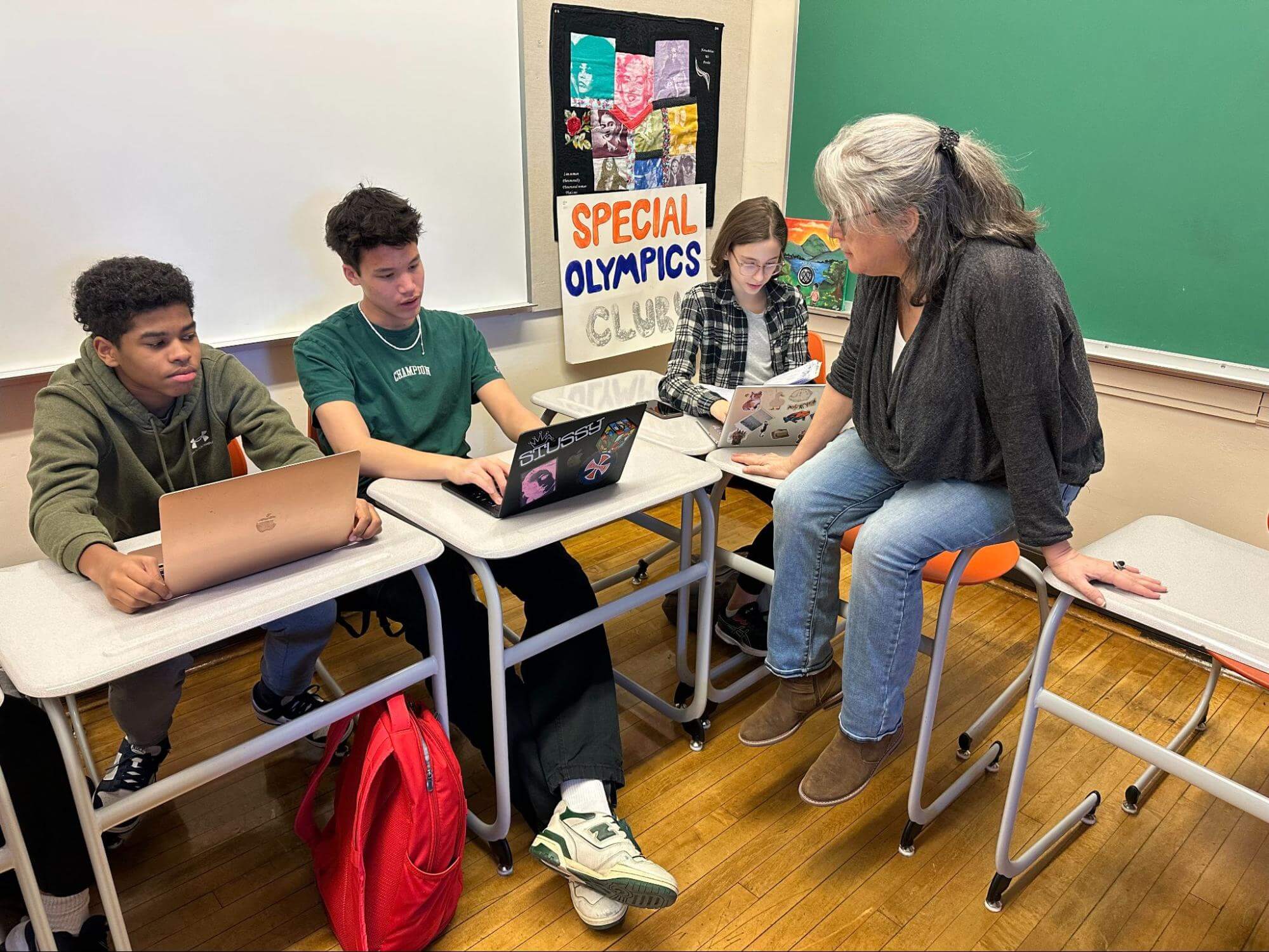
In History Teacher Halle Amore Bauer’s Modern World History class, 9th Graders held a classroom debate to discuss the efficacy of the Haitian Revolution.
“To answer whether the Haitian Revolution was successful, students must grapple with both its short-term consequences and the long-term legacy,” says Amore Bauer. “The more practice students have with going beyond a ‘single story’ narrative and sifting through different interpretations, including their own, the more prepared they will be to not only continue with future history electives but to be strong critical thinkers.”
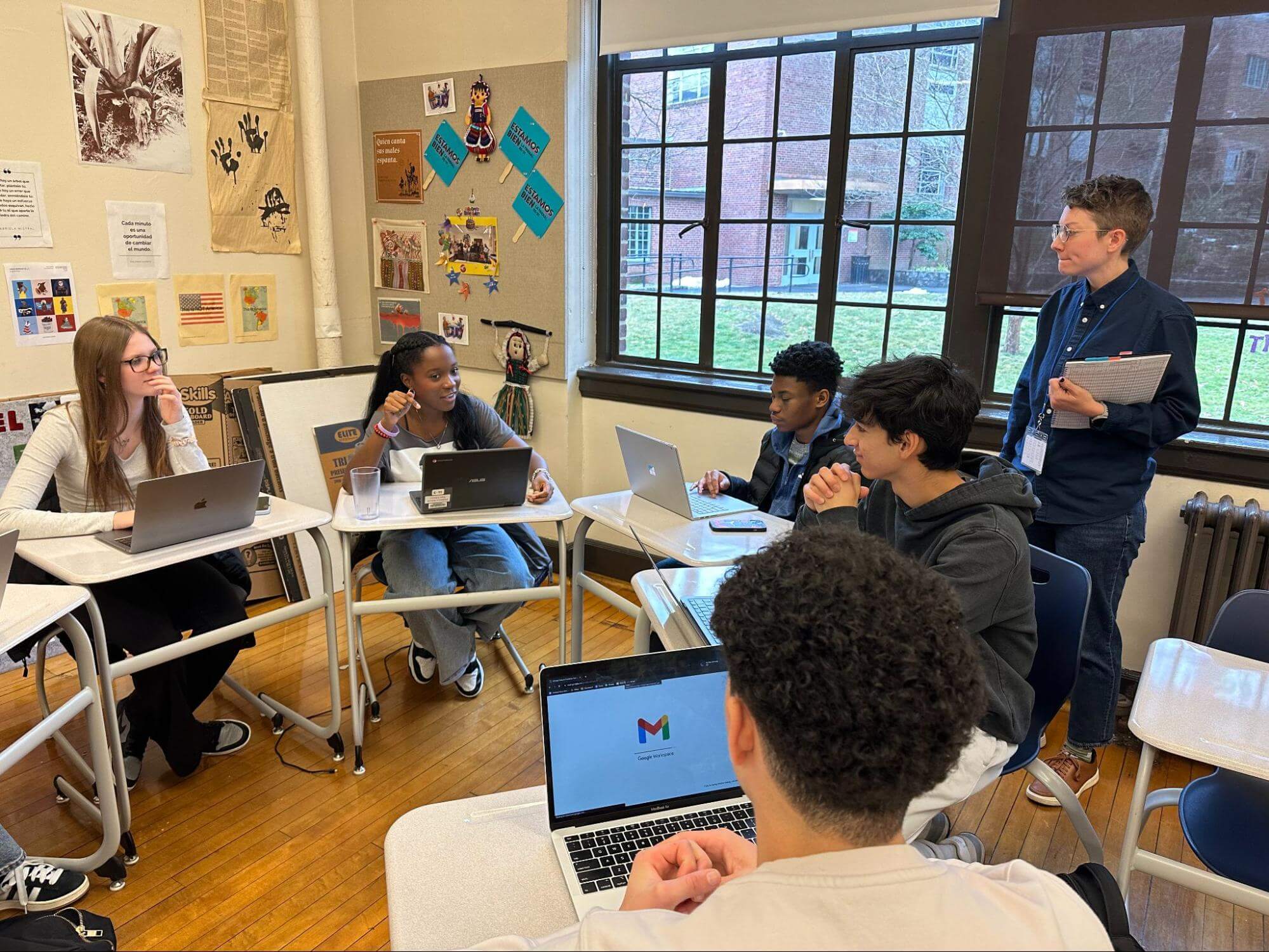
In History Teacher Raquel Maldonado’s Modern World History class, students followed a Socratic seminar model that taught them to “listen to one another, take charge of their learning, and be comfortable without closure,” as Maldonado says. Using this student-centered discussion method to understand different texts, students investigated how European Jewish intellectualism emerged from the European Enlightenment.
“It’s important to view history and current events through multiple lenses because humans don’t understand events in the same way,” Maldonado says. “It’s those disagreements, those variations in thought, that make history. Or, perhaps, it’s when humans give power to those understandings. That is why it’s important to discuss how various philosophical movements address different historical or contemporary realities.”
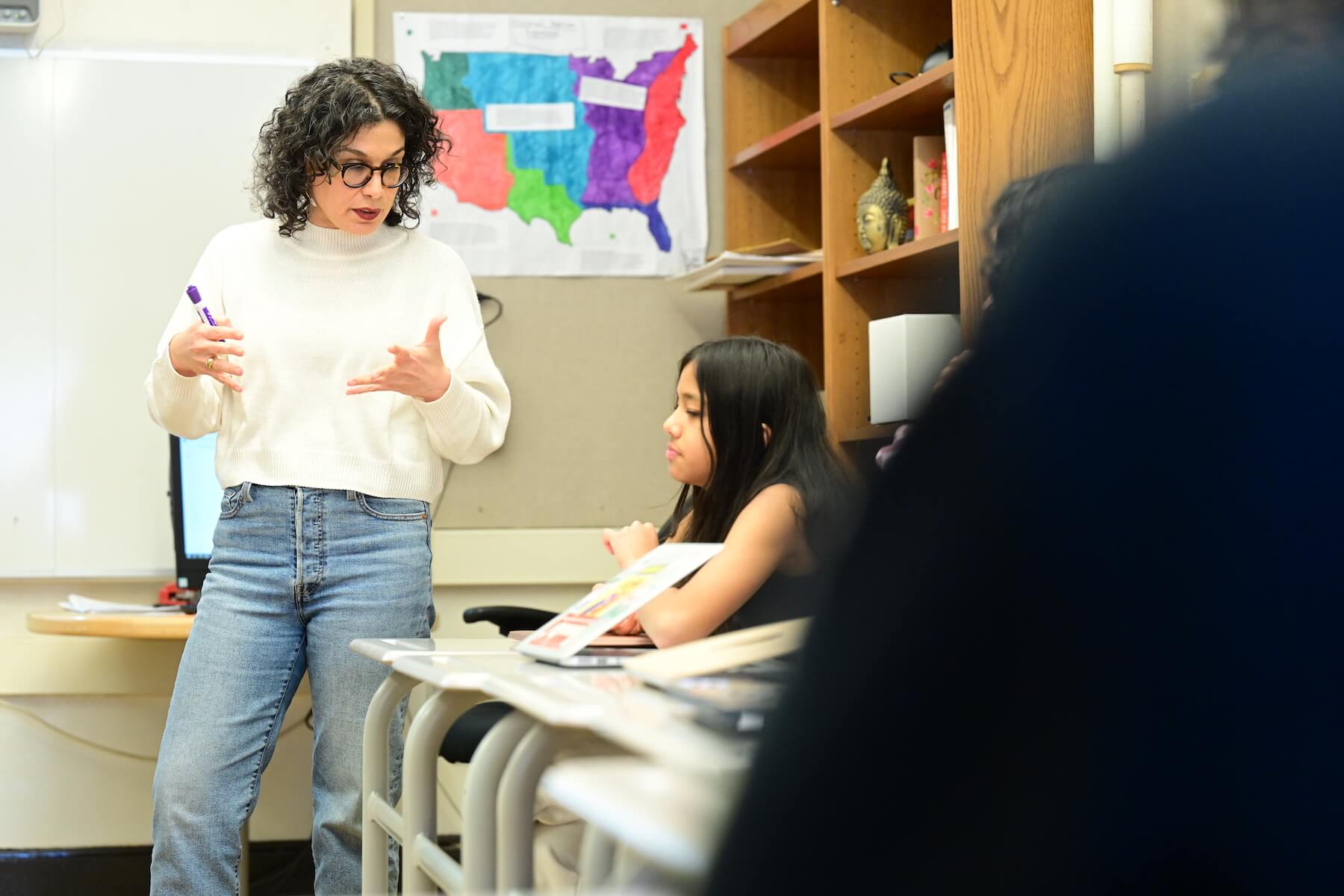
“We carry our history with us,” adds Drohan. “Our department lives this sentiment in everything we teach. Students are asked to examine not only the historical event itself, but also how that event may be seen differently depending on the viewer’s own past and history.”
These examples of how history can be taught come from the 9th Grade curriculum, when Fieldston Upper students study Modern World History. This skills-based introductory course encompasses units such as Land-Based Empires, Atlantic Revolutions, The World Wars, and The Holocaust, which includes a grade-wide trip to the Jewish Museum. 10th Grade students either participate in a Survey of United States History class, exploring topics like Indigenous Society and Resistance, Colonization and Whiteness, Building Black Identity, Latinx History, Jewish American History, and Asian American History, or an interdisciplinary Humanities course combining history with ethics and English.
“Each United States History unit focuses on a different lens, like Native American history or African American history, so that we cover the same events, like the American Revolution, at different times throughout the year, each time using a different lens,” says History Teacher Paul Heideman. “It helps students understand that there’s no one story of any historical event. All of this is important to help students realize that in the present day, what’s happening in the world means something very different to different people.”
As students mature through the curriculum, they delve deeper in chosen elective courses. 11th and 12th Grade students may select specific history electives, choosing from a wide range of courses. Throughout the electives’ two-year rotation cycle, courses offered include Queer History, Nazi Germany and the Holocaust, North American Indigenous History, The Making of Modern South Asia, United States Women’s History, and more. The 2024–2025 academic year’s electives will include courses such as African Studies, The Holocaust through Testimony, Asian American History, Modern Jewish History, “Aquí Se Respira Lucha”: Modern Latin America, and Modern Middle East. Topics within the history curriculum often evolve to include various perspectives and student understanding of current events.
In Heideman’s American Revolution elective class, for instance, students participated in a simulation of negotiating a peace treaty between Native Americans and British colonists in 1760s Pennsylvania. They channeled historical figures to present speeches, consult maps and documents, and work together to discuss peace terms.
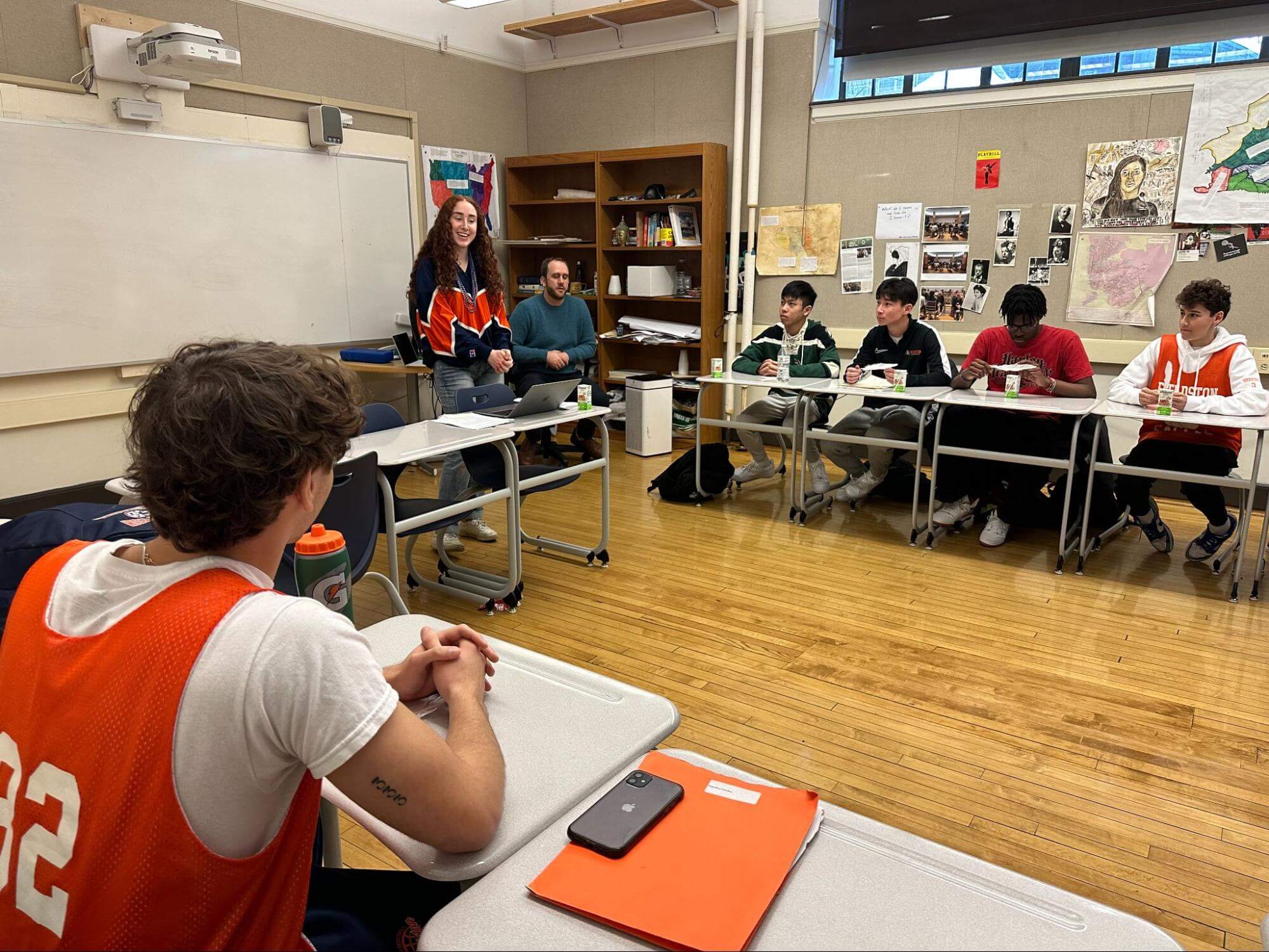
“With every unit, we can challenge ourselves and students to shed light on the history that is typically kept in the dark,” Maldonado says. “The answers we find there might just illuminate truths about our societies and institutions that will help us grow into a more ethical version of ourselves.”
In line with our mission, Fieldston Upper history classes introduce opportunities that help students explore the connections between the past and present. This enables them to use the tools of historians to become problem solvers, and engages them in interactive activities that deepen their understanding of history’s effect on our world.
